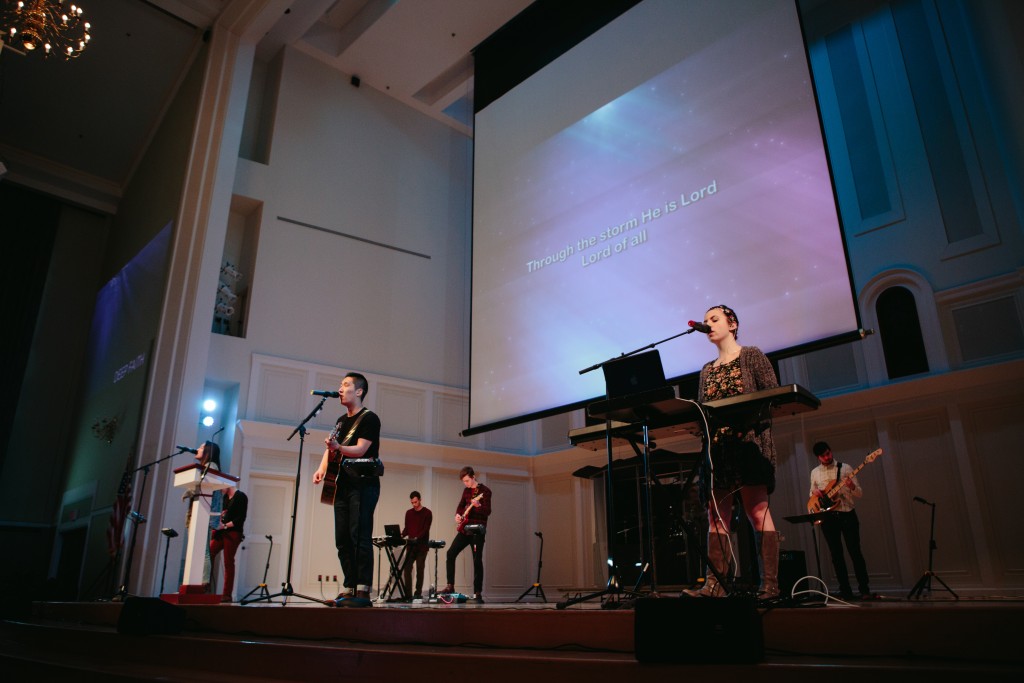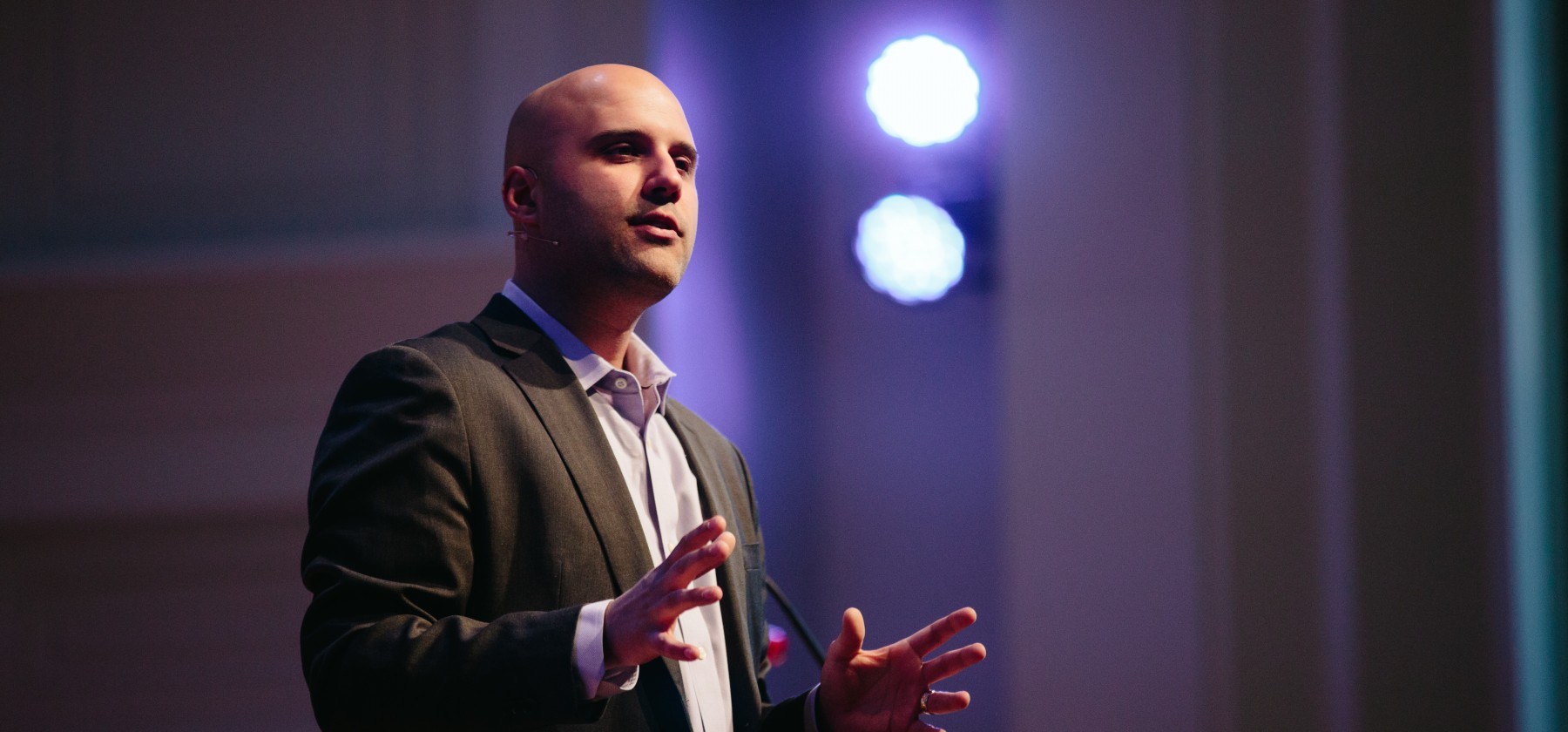DEEP FAITH: Life With God
This was DEEP FAITH week at Gordon, a yearly focus week for prayer, spiritual growth, and multiple opportunities to worship together. We welcomed Skye Jethani (pictured above), speaker and author, to reflect on God’ s character and presence in our lives. Jethani brought a unique voice to Gordon. He focused on studying the patterns of culture, and seeking to teach and learn through a theological lens that is accessible for anyone. His Chapel talks drew such a crowd that even the “standing room only” section was brimming. In addition, he opened space to converse in smaller numbers with professors from the Biblical Studies Department and was very open to receiving questions from the student body.
As DEEP FAITH week began, Jethani spoke about how we see God. He asked: Who is the Jesus we are really worshipping? This profound question explores the possibility that our needs are not being met through our faith—that we focus on our desires for who we want Jesus to be, rather than surrendering control and relinquishing our lives into his charge. Many students were very engaged with this idea, and it was special to see such diversity in wrestling with this message. Some pushed back on a few points, but the very space to push back and wrestle communally is a cornerstone to a growth of faith.
 In the days that followed, Skye Jethani explored how our vision of who God is affects how we relate to the world. He pointed out that the Gospels show us that Jesus spent much of his time trying to open the eyes of the world so that the marginalized would no longer be left out. For example, he contrasted Peter and Jesus’s responses to the Roman soldiers in the Gospel account of Jesus’s arrest (Peter attacks the soldier and cuts off his ear, while Jesus acts in compassion and heals very soldier that came to take him away). Jethani asked: Can we see ourselves in Peter?
In the days that followed, Skye Jethani explored how our vision of who God is affects how we relate to the world. He pointed out that the Gospels show us that Jesus spent much of his time trying to open the eyes of the world so that the marginalized would no longer be left out. For example, he contrasted Peter and Jesus’s responses to the Roman soldiers in the Gospel account of Jesus’s arrest (Peter attacks the soldier and cuts off his ear, while Jesus acts in compassion and heals very soldier that came to take him away). Jethani asked: Can we see ourselves in Peter?
DEEP FAITH week has wrapped up, but at Gordon we continue wrestling with how our own fears and desire for control are manifested in how we respond to our communities and the wider culture—and how we project that onto who we want Jesus to be. Our days focused together on these issues were a call to expand our visions, think about the selfishness that often dictates who we shape ourselves to be, and seek to further understand who Jesus is and what he is about.
By Marianthy Posadas-Nava ’17, English language and literature and French
 The Bell
The Bell